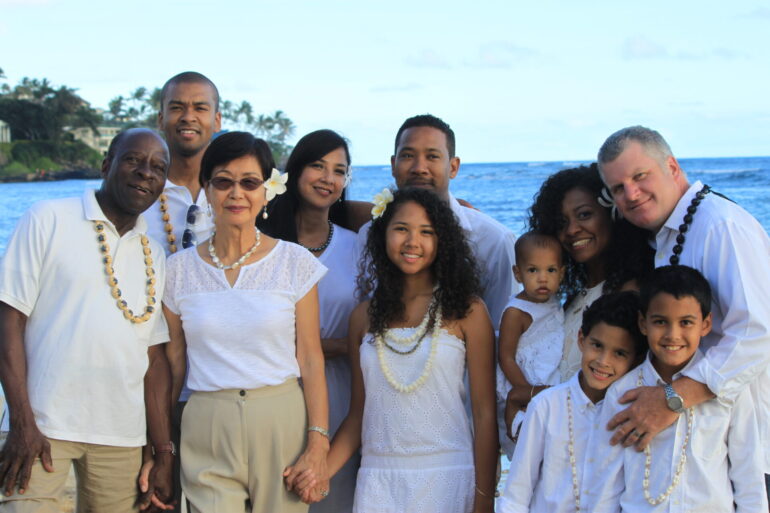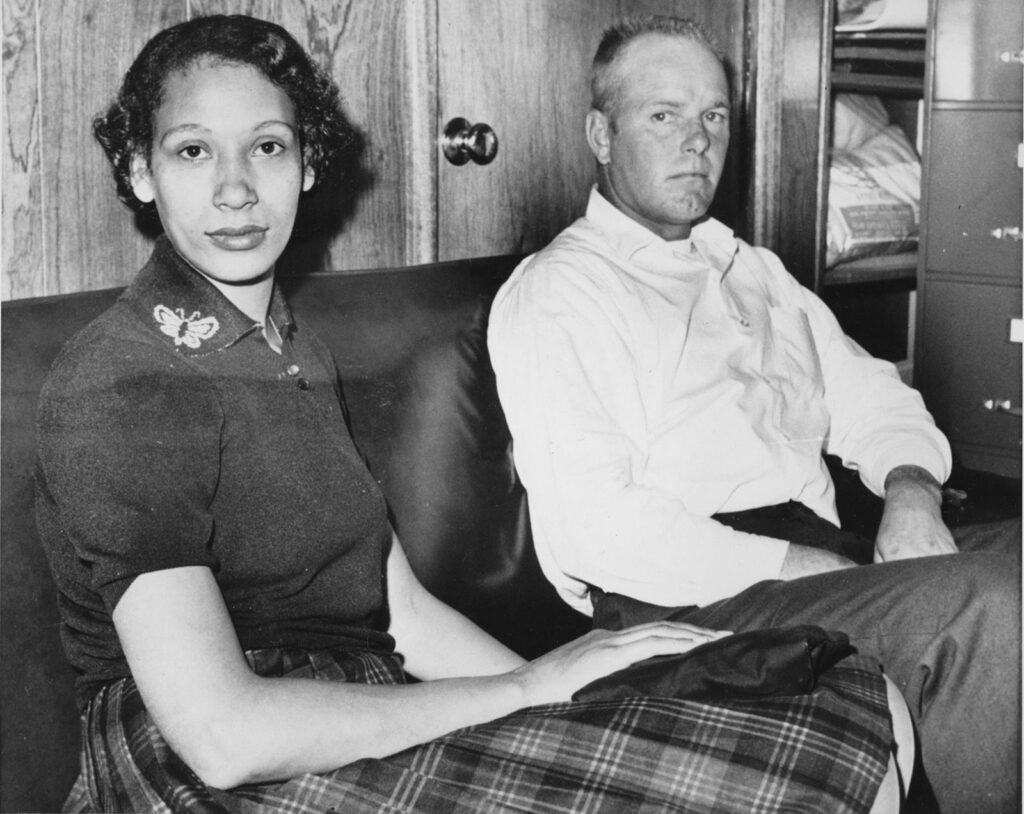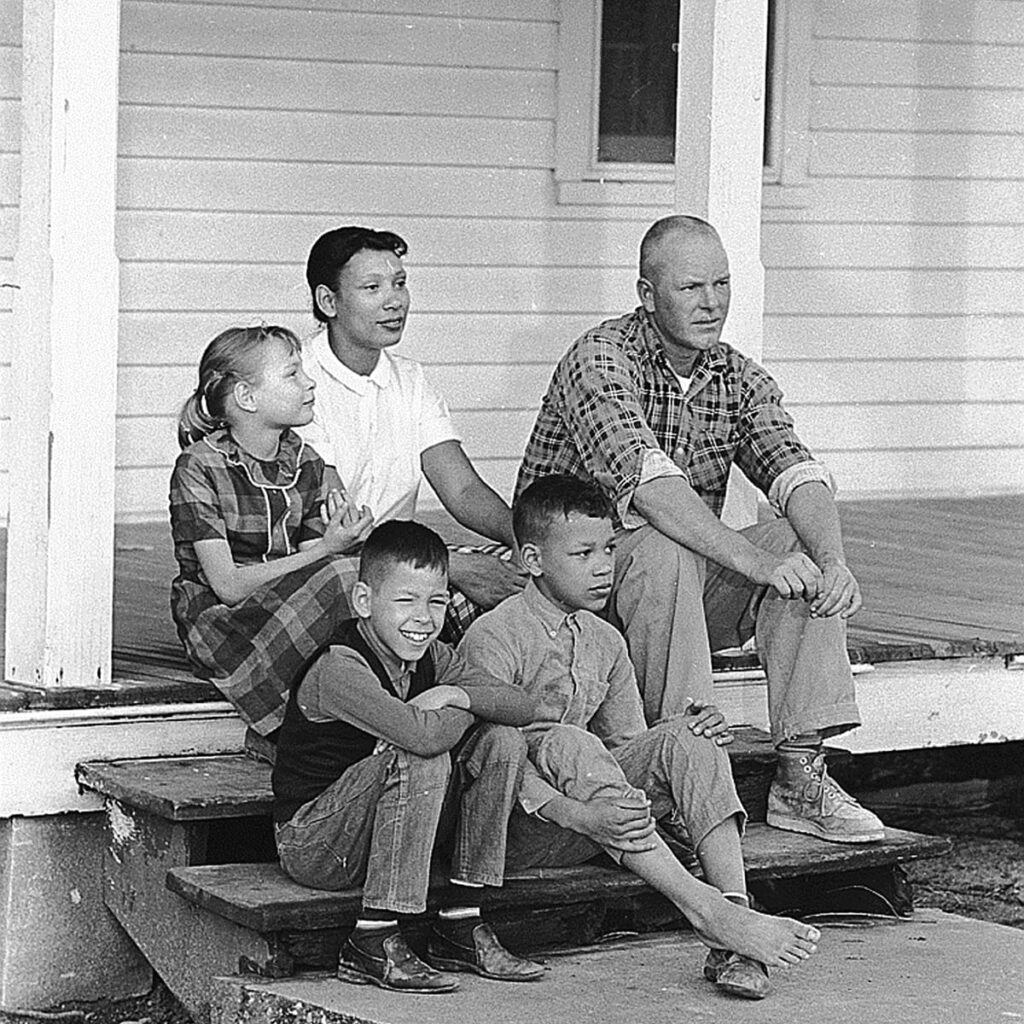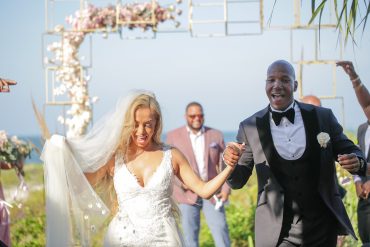Mildred and Richard Loving are one of the most famous couples in American History. Not for what we would think as great by today’s celebrity status–but simply because when they got married they were breaking the laws.
This was not your traditional power couple who gained their fame for building wealth or by acquiring Hollywood status by any means. But they rose to fame because they were of two different races–Black (African-American, Colored, Black, or Negro) and White (Caucasian, of European descent).
They became famously known for being plaintiffs in the landmark U.S. Supreme Court case Loving v. Virginia. In 1958, The Lovings was then charged with violating the state’s antimiscegenation statute, which banned interracial marriages. Can you imagine there was a law that banned two human beings from exercising their free will–who loved each other, banned from choosing to be married to each other based on the color of their skin?
What struck me strange about this whole story, was this was a law-governed by “professed Christians”. It got me thinking– is it possible that God didn’t want races mixing? And if he didn’t, why did he create them? This has been a troubling question for me my whole entire life. This goes beyond Black and White, it crosses over to all races. There are people that find it difficult to accept two people of other races falling in love and marrying. Let alone procreating.
So I mustered the courage to ask a group of people that truly base their whole faith on the word of God. I wanted them to show me, tell me if God is against interracial marriage. And I got my answers but it raised more questions. And I am happy to share with you our WBM inquisitive readers our findings because our very existence is based on MULTI-ETHNIC, MULTICULTURAL, AND INTERRACIAL MARRIAGES.
I felt compelled to share their responses in this article with you, our faithful readers because it truly satisfied my curiosity because they actually had members of their faith that were in these interracial marriages and they were happy. They even quoted the late great Maya Angelou–I was truly impressed.
When Love Calls
“The human heart . . . tells us that we are more alike than we are unalike.”—Maya Angelou
When Greg Watson began dating the woman of his dreams 30 years ago, the color of her skin was not a deterrent from pursuing her.
“We didn’t see color or race as an issue,” said Greg, a West Virginia native who just celebrated his 30th anniversary with his wife Jody. “We weren’t brought up to judge people that way.” Not everyone in the community agreed, however, and Greg remembers when he began noticing heads shaking in disapproval. “When we would go out, Jody would caution me, ‘Why do you keep looking over your shoulder?’” said Greg. “I would say, ‘You just never know.’
In a recent CNN article, John Blake wrote: “When some people see a Black and White couple, they don’t see two individuals—they see a projection of their own racial myths, insecurities, and fantasies.”
While interracial relationships are becoming more common, community and family acceptance can still be a challenge. According to the Pew Research organization, one in five new marriages is interracial. While statistics suggest that interracial marriages in America have gained greater acceptance, not all couples have that experience.
How can interracial couples navigate this complex cultural landscape? For the two families, we spoke with, shared religious faith and a welcoming community of fellow believers have been invaluable.
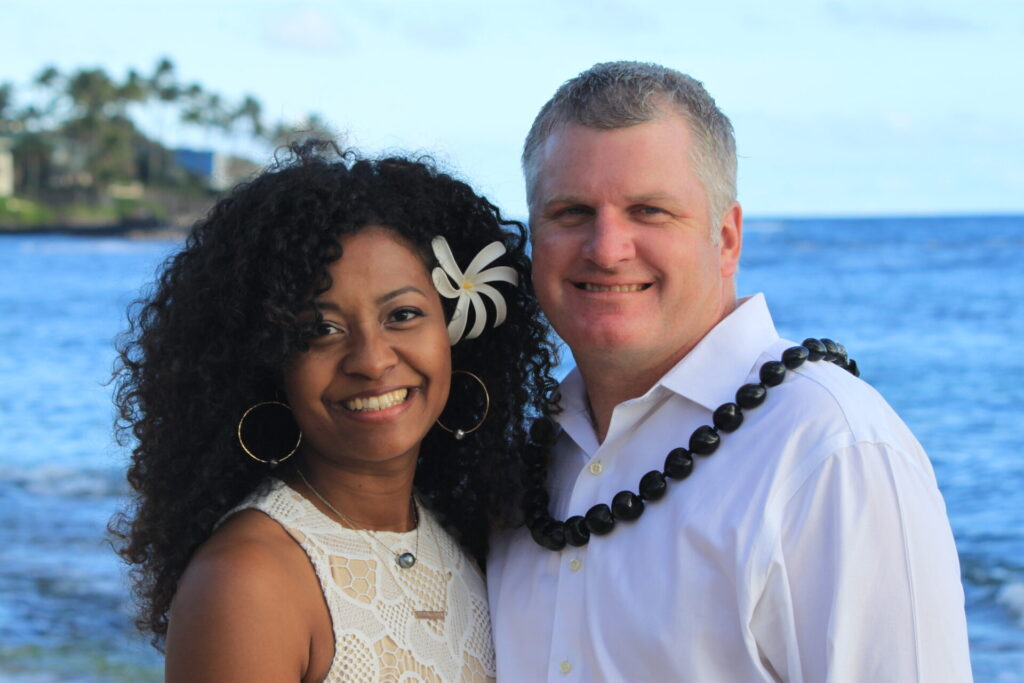
What Happens When Love & Faith Collide
Growing up in a diverse congregation of Jehovah’s Witnesses, the Watsons were accustomed to worshipping and fellowshipping with people of various races. Neither of their families nor their fellow congregants were surprised when they began to date and later married. They even had a whole article that addressed the very topic which we are currently discussed. What Does the Bible Say About Interracial Marriage? I have to say it is a must-read. I was pleasantly surprised they even addressed these sensitive topics as a congregation.
For the multiracial, multi-generational Homza clan, community and faith provided similar support.
Monifa Homza’s Nigerian-Caribbean father and Korean mother were often a curiosity in their Bronx neighborhood. But, at home, the children could see their parents’ love.
“They always had a peaceful and loving relationship,” Bronx-born Monifa said. “They took care of each other in spite of what was happening around them.”
Meanwhile, Monifa’s future husband, Isaac, was growing up in rural Virginia where he observed the racial divide daily on his bus ride to school. As he passed two churches that shared a parking lot, he observed that the lot divided attendees by race. Isaac said, “It seemed strange to me because at our congregation we all met together.”
The two eventually met through a mutual friend when Isaac moved to New York to work at the headquarters of Jehovah’s Witnesses – a NY campus housing volunteers from around the world. Monifa was immediately drawn to Isaac’s sharp blue eyes. Smiling Isaac said, “I thought she was beautiful.”
Physical attraction and having a similar sense of humor were not the only reasons they were drawn to each other. Monifa’s family accepted Isaac into their home where he was willing to try Korean foods and even began learning Korean—a useful skill when he met Monifa’s relatives who did not speak English.
Sharing the same faith and value system has helped both generations of this multiracial family overcome their own cultural biases.
Prior to becoming one of Jehovah’s Witnesses, Monifa’s father would not have married his wife nor accepted Isaac as a son-in-law. But after studying the Bible and associating with the Witnesses, he widened his circle of friends.
“He embraced Isaac. It was heartwarming to me because I knew the background my dad had and the prejudices he held,” said Monifa. “It’s not the way you look. It’s what you are on the inside.”
Now living in Maui with three children, the Homzas are immersing themselves in a new culture. Monifa and her daughter, Ka’imi (6), are taking a hula class and the entire family is learning Hawaiian in their congregation where they have been received with the welcoming Aloha Spirit.
“One of the Bible principles we try to teach our children is to love our neighbors,” said Isaac. “To be kind to our neighbors, share what we have with them.” Monifa adds, “We don’t categorize people by racial differences. We love people of all races.”



KEYS TO SUCCESS
According to a study conducted by the University of Utah, married couples who had shared values reported higher levels of marital happiness and individual well-being than those who did not.
The Watsons agree that love, loyalty, and faith are among the shared values on which they base their marriage and family life. Blending their children from previous marriages made these qualities particularly important.
“We made a pact that it’s never yours or mine,” said Greg. “It’s ours.”
Successful marriages also require good communication. The Watsons credit their daily Bible reading and praying with helping them to communicate on a deeper level with one another, especially when differences of opinion come into play.
“When you have differences,” said Jody. “You have a base to go back to—God’s standards.”
“Our cohesiveness has been our faith and applying principles,” said Greg. “In the Bible, it said that God made the two one, and we take that very seriously.”
Now retired and with no children at home, the Watsons have even more time for each other. With their love for travel limited, they go hiking and bicycling to explore areas closer to home, as well as spend time in a volunteer ministry.
“I absolutely love it,” said Jody. “We spend all of our time together.” Greg said, “Things just seem to be getting better and better.”
So as we celebrate another year of the bold move the “Lovings” made that changed laws–it might be safe to say that for some– Bible knowledge and application made them light years ahead of what we are now practicing today. So I guess maybe it is not so hard to believe “God is not partial.” Acts 10:34.
As we all endeavor to be more kind to one another which will include all members of our family and friends–let’s rethink and ask ourselves, whose standards do we truly want to live by as we begin our new lives with our beloved?

